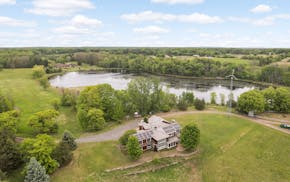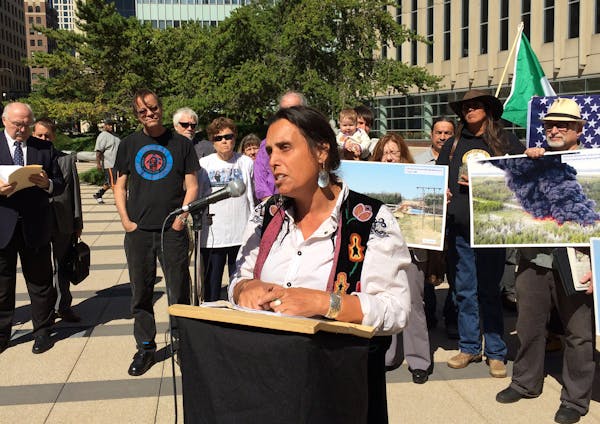The Minnesota Court of Appeals ruled Monday that a full-scale environmental review must be completed before plans for a controversial crude oil pipeline across northern Minnesota can proceed.
Approval of the Sandpiper pipeline and its route "constitutes a major governmental action" under state law that "requires an environmental-impact statement" before regulators can give approval, the court said.
Judge Roger Klaphake, a retired appeals court judge serving by special appointment, said a review is necessary because the pipeline "has the potential to cause significant environmental effects."
The ruling sends that environmental issue back to the Minnesota Public Utilities Commission (PUC) and invalidates a 5-0 vote by the commission in June approving a certificate of need for Enbridge Energy, the pipeline's owner that wants to replace an older pipeline.
The ruling will likely delay construction of the $2.6 billion, 610-mile pipeline carrying North Dakota crude oil across remote areas in northern Minnesota to terminal in Clearbrook, Minn., and then on to Superior, Wis. Enbridge had hoped to start work on the pipeline in 2016 and finish the following year.
Critics want the PUC to consider routes for the pipeline in less environmentally sensitive areas. The impact on wild rice harvesting is also a concern.
Enbridge spokeswoman Lorraine Little did not say whether the company would appeal the decision.
"We will evaluate our options for the next steps with this important project," Little said in an e-mail to the Star Tribune.
"Our position has always been the Sandpiper Pipeline Project is the safest and most environmentally sound transportation option for the movement of North Dakota crude petroleum while carefully balancing the needs and providing clear and direct benefits to the state of Minnesota," Little added.
A spokesman for the PUC said the commission also is reviewing the ruling and "will be carefully evaluating its options and considering how to proceed."
The appeal of the PUC's earlier action was brought on behalf of Friends of the Headwaters, a coalition of interests based in Park Rapids, Minn., that objects to building pipelines through the upper Mississippi River watershed.
Friends of the Headwaters President Richard Smith said the PUC can find alternative routes for the pipeline that avoid environmentally fragile areas.
"Enbridge's proposed corridor puts far too many of our precious natural resources at risk merely to serve the company's financial interest," Smith said in a statement.
In his ruling, Klaphake said the PUC's current timetable for consideration of the pipeline project means an environmental review of the pipeline's route would not be completed until after a decision was made on Enbridge's certificate of need.
Klaphake said completion of an environmental impact statement during the certificate of need review ensures that "decisionmakers are fully informed regarding the environmental consequences of the pipeline, before determining whether there is a need for it,"
Such action, he said, "seems particularly critical here because once a need is determined, the focus will inevitably turn to where the pipeline should go, as opposed to whether it should be built at all."
David Phelps • 612-673-7269

Minnesota Department of Health rescinds health worker layoffs

Eco-friendly house on 30 acres near Marine on St. Croix listed at $1.6M

DOGE cuts federal money for upgrades at Velveeta plant in New Ulm

